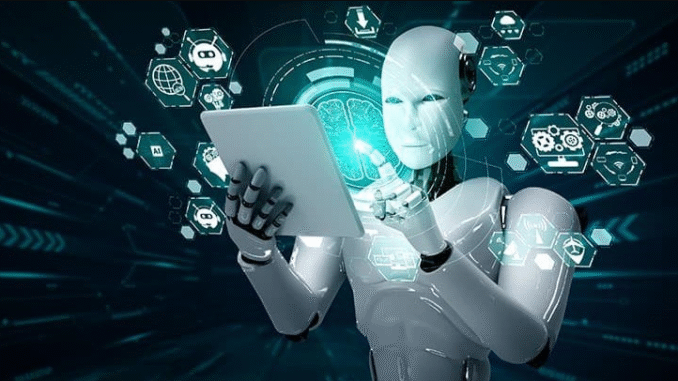
How Artificial Intelligence Is Transforming Everyday Life
Artificial Intelligence (AI) is no longer just a futuristic concept seen in science fiction films. It’s here—and it’s rapidly transforming how we live, work, and interact. From smart assistants in our homes to personalized recommendations on our devices, AI is shaping our daily experiences in ways we often don’t even notice. In this article, we’ll explore the many ways Artificial Intelligence is transforming everyday life, and what it means for the future.
What Is Artificial Intelligence?
Before diving into real-world impacts, it’s important to understand what AI actually is. At its core, Artificial Intelligence refers to machines or software that can mimic human intelligence. This includes the ability to learn from data, recognize patterns, make decisions, and even understand natural language.
Some common subsets of AI include:
- Machine Learning (ML): Systems that learn and improve from experience.
- Natural Language Processing (NLP): Machines understanding and responding to human language.
- Computer Vision: The ability to interpret and make decisions based on visual inputs.
- Robotics: AI-driven machines capable of performing physical tasks.
Now, let’s explore how these technologies are impacting our everyday lives.
1. Smart Homes and Virtual Assistants
One of the most visible applications of AI is in smart homes. Devices like Amazon Alexa, Google Assistant, and Apple’s Siri are powered by natural language processing and machine learning.
Real-Life Examples:
- Voice-controlled lighting, thermostats, and appliances.
- Personalized news, weather, and reminders.
- Smart security systems with facial recognition.
Why It Matters:
These technologies not only offer convenience but also improve energy efficiency, safety, and accessibility for elderly or disabled individuals.
2. Personalized Recommendations
Have you ever wondered how Netflix seems to know exactly what you want to watch? Or how Spotify curates your favorite playlist? That’s AI at work.
Real-Life Examples:
- Netflix suggesting shows based on your watch history.
- Amazon recommending products you’re likely to buy.
- YouTube curating your video feed based on your behavior.
Why It Matters:
AI enhances our digital experiences by filtering out irrelevant content and helping us discover new interests efficiently.
3. Healthcare and Wellness
AI is revolutionizing healthcare by enabling faster diagnoses, predictive analytics, and more personalized treatments.
Real-Life Examples:
- AI-powered apps that track fitness and offer health insights.
- Virtual consultations using AI to assist doctors in diagnostics.
- Predictive tools that analyze patient data to foresee potential health issues.
Why It Matters:
AI helps reduce human error, improves access to healthcare, and makes medical services more efficient and accurate—potentially saving lives.
4. Transportation and Navigation
AI has greatly improved how we travel, both through personal transportation and public systems.
Real-Life Examples:
- GPS apps like Google Maps using AI to suggest optimal routes based on real-time traffic.
- Ride-hailing services like Uber optimizing routes and pricing with AI algorithms.
- Self-driving technology being developed by companies like Tesla and Waymo.
Why It Matters:
These applications save time, reduce stress, and are paving the way for a future where autonomous vehicles could become the norm.
5. Banking and Finance
AI has become a crucial part of the finance industry, improving both customer experience and security.
Real-Life Examples:
- AI chatbots in banking apps to assist with queries 24/7.
- Fraud detection systems that monitor transactions in real time.
- Robo-advisors offering personalized investment strategies.
Why It Matters:
AI makes financial services more accessible, efficient, and secure for everyday users, from saving money to managing investments.
6. Education and E-Learning
The education sector is using AI to enhance learning experiences and adapt to individual student needs.
Real-Life Examples:
- AI-driven platforms like Duolingo that adapt difficulty based on performance.
- Virtual tutors providing one-on-one help.
- Automated grading and feedback tools for educators.
Why It Matters:
AI creates personalized learning environments, helping students progress at their own pace and making education more inclusive.
7. E-Commerce and Retail
AI is transforming how we shop, both online and in physical stores.
Real-Life Examples:
- Virtual try-on features using augmented reality and AI.
- Chatbots answering customer service questions instantly.
- Inventory management systems predicting product demand.
Why It Matters:
AI enhances the shopping experience, reduces operational costs for businesses, and helps consumers make better decisions.
8. Social Media and Content Moderation
Social media platforms rely heavily on AI to personalize content and ensure community safety.
Real-Life Examples:
- Facebook and Instagram showing posts based on user preferences.
- AI algorithms detecting and removing harmful or inappropriate content.
- Automated translation and caption generation.
Why It Matters:
While not without flaws, AI helps social media platforms manage vast amounts of content and provide relevant information to users.
9. Customer Service and Support
Gone are the days of waiting hours for customer support. AI has made customer service faster and more efficient.
Real-Life Examples:
- AI chatbots answering FAQs instantly.
- Virtual agents capable of handling complex queries.
- Automated ticketing systems prioritizing urgent issues.
Why It Matters:
This saves businesses time and resources while improving customer satisfaction and support availability.
10. Everyday Tasks and Productivity
Even mundane tasks are being improved by AI—from sorting emails to setting reminders.
Real-Life Examples:
- Email filters detecting spam or prioritizing important messages.
- Calendar apps that suggest meeting times.
- Smart keyboards that suggest words and correct grammar.
Why It Matters:
These small yet impactful tools help boost productivity and make everyday tasks smoother and faster.
The Future of AI in Daily Life
As AI technology continues to develop, we can expect it to become even more integrated into our lives. Potential future applications include:
- AI-driven personal health coaches.
- Fully autonomous delivery drones and vehicles.
- Emotionally intelligent virtual companions.
However, with these advancements come challenges like data privacy, ethical concerns, and job displacement. It’s crucial to address these issues as we move forward to ensure that AI benefits everyone.
Conclusion
Artificial Intelligence is not just changing industries—it’s transforming our everyday lives in countless ways. From smart homes and personalized shopping to improved healthcare and safer travel, AI is making life more convenient, efficient, and interconnected.
As consumers and citizens, understanding how AI impacts our world helps us make more informed decisions and prepare for a future where human and machine collaboration becomes the norm.
In short, AI is not just part of the future—it’s already a big part of our present.

